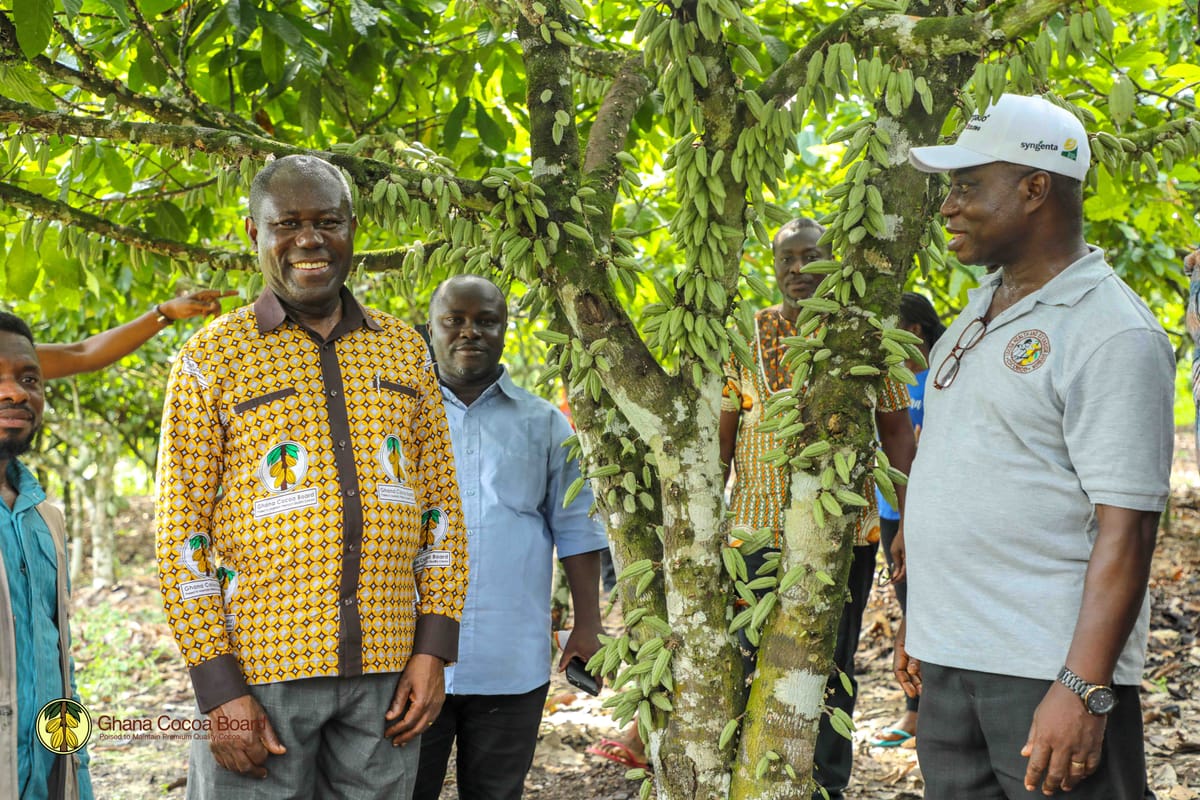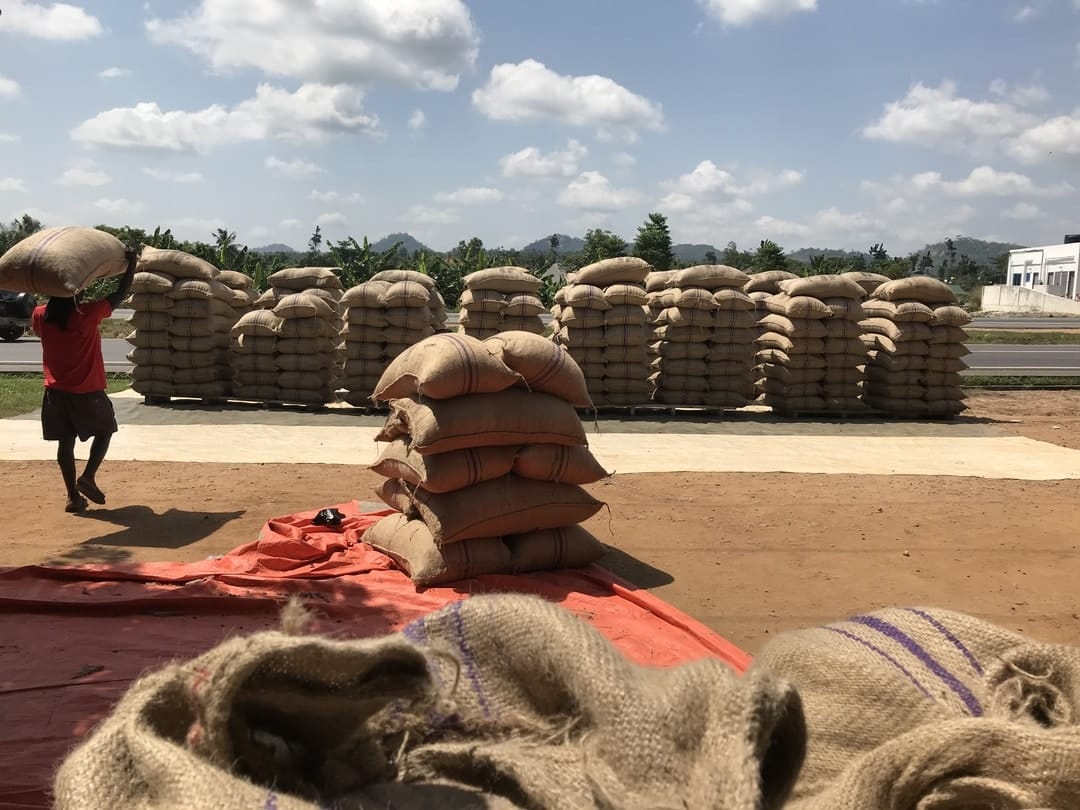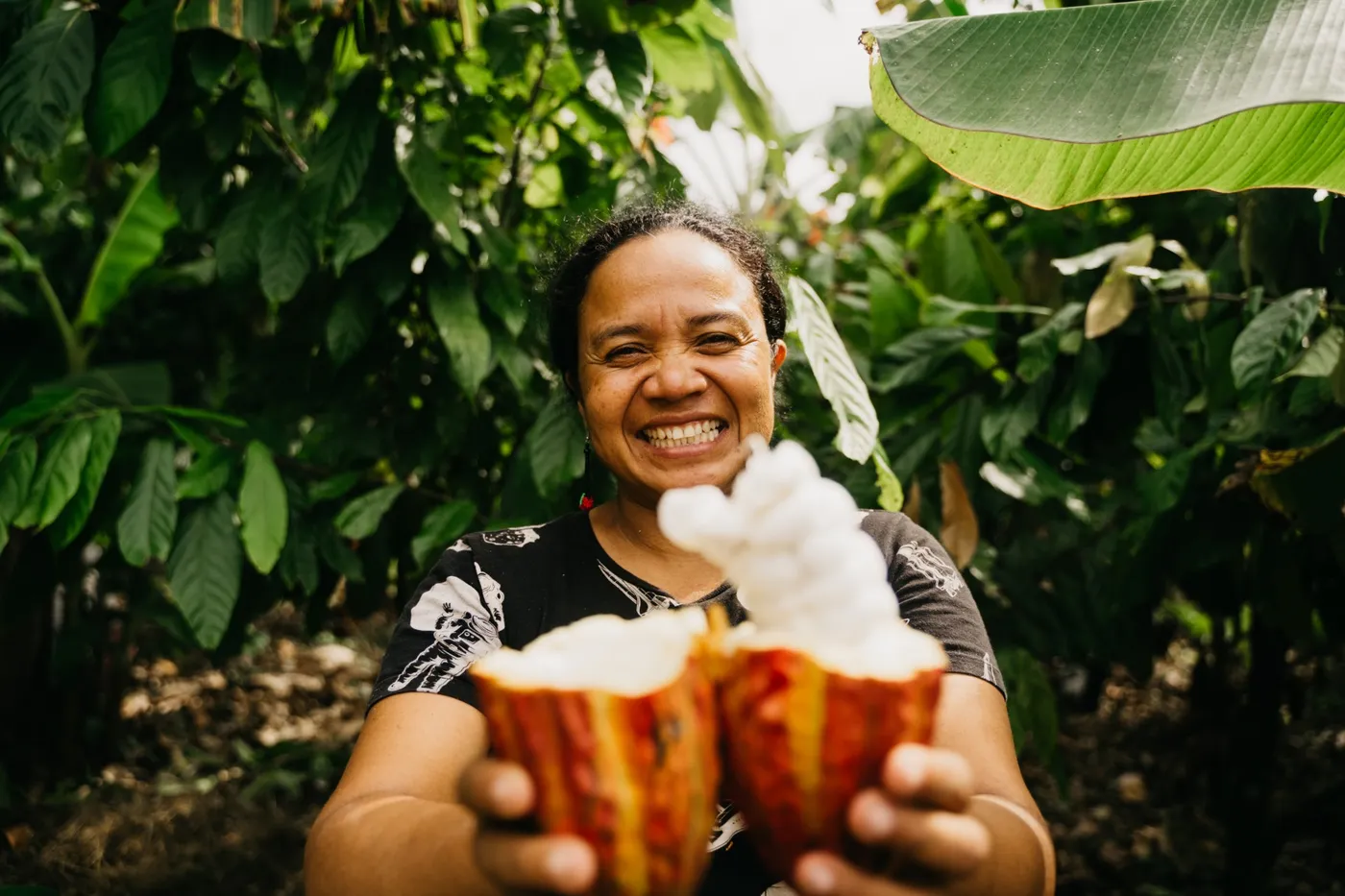CocoaRadar talks to Julia Ocampo, Luker Chocolate’s VP of Cacao Sourcing and Sustainability, on the challenges ahead …In addition to being known for its premium cocoa, Luker Chocolate has a long history of following the best practices in sustainability standards.
Earlier this year, the company released its 2022-23 Sustainability report, highlighting core gains against challenges on farmer pay, social wellbeing, and female empowerment, along with ongoing efforts to eradicate deforestation from its supply chain.
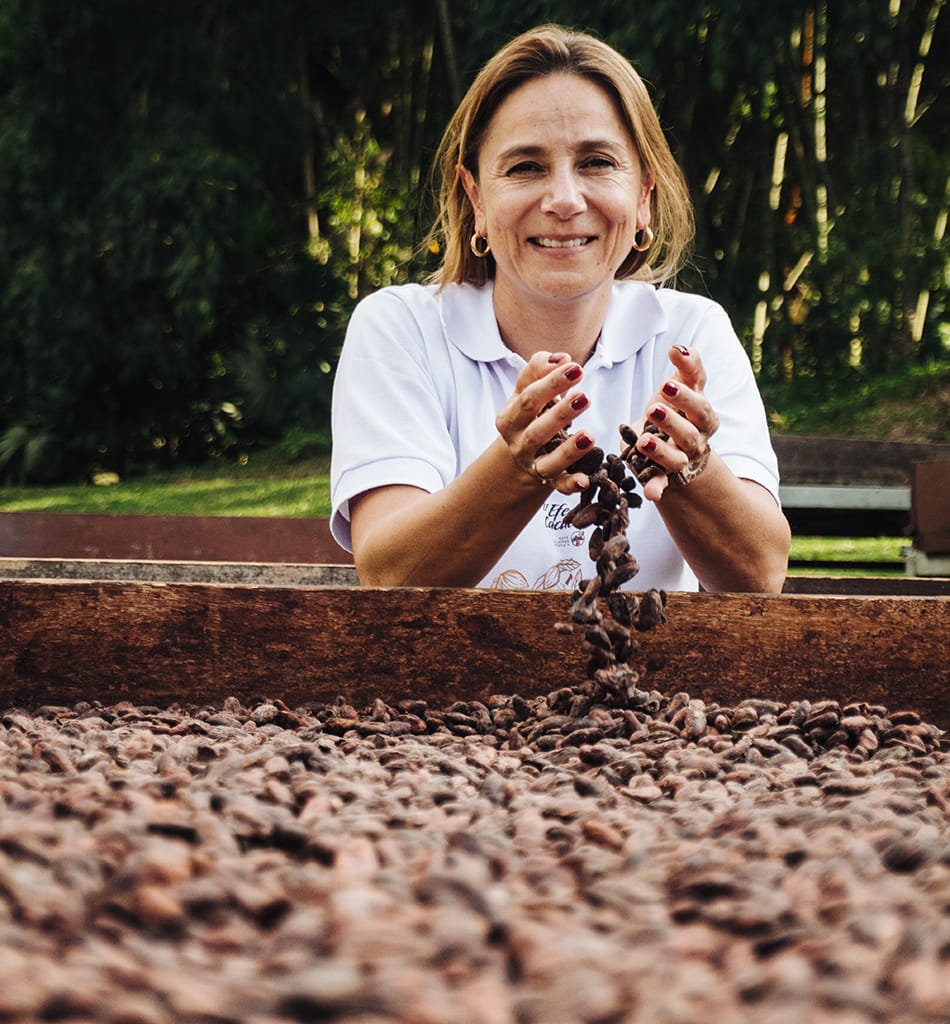
Julia Ocampo, Luker Chocolate’s VP of Cacao Sourcing and Sustainability, is pleased with the performance. She informs cocoaradar.com that the first batch of Luker Chocolate is fully compliant with the new European Union Deforestation Regulation (EUDR) and ready for export at the end of the year.
The latest research from the World Bank shows that the impact of the EU Deforestation Regulation (EUDR) on low- and middle-income countries is likely to be significant. It estimates that up to 22% of Latin America’s exports to the EU - or 2.3% of its total exports - could be affected.
“We are ready to export to the European Union and will continue because we have a big national market. We want to demonstrate that all our value chains are deforestation-free.”
She says the hold-up is in Brussels. They are now waiting for the European Commission’s Deforestation Due Diligence Registry to go live so the companies can upload their due diligence statements.
“We have the information from the farms. We have all the polygon data plots from GPS satellites to know where they are. We know some deforestation [in Colombia in general] is linked to activity in certain areas, but we have all this information. We have full traceability to the finished product ready for export to the EU, so we are ready.”
Human Rights
As part of Luker’s sustainability mission, it continues working with its farmers to develop a Human Rights understanding that integrates child labour, women's equality, and farmer and family wellbeing into its certifications.
“This is work that we have to do together with the farmers. It's not only about deforestation but also about human rights and the right way to do it according to Colombian law,” she says.
While there has been controversy surrounding the forthcoming implementation of the EUDR, with parts of the industry complaining there has been too little time to prepare for such complex laws, Ocampo says she believes the rules are clear. Much of the legislation in Colombia has already been incorporated into the country’s extensive national sustainability laws.
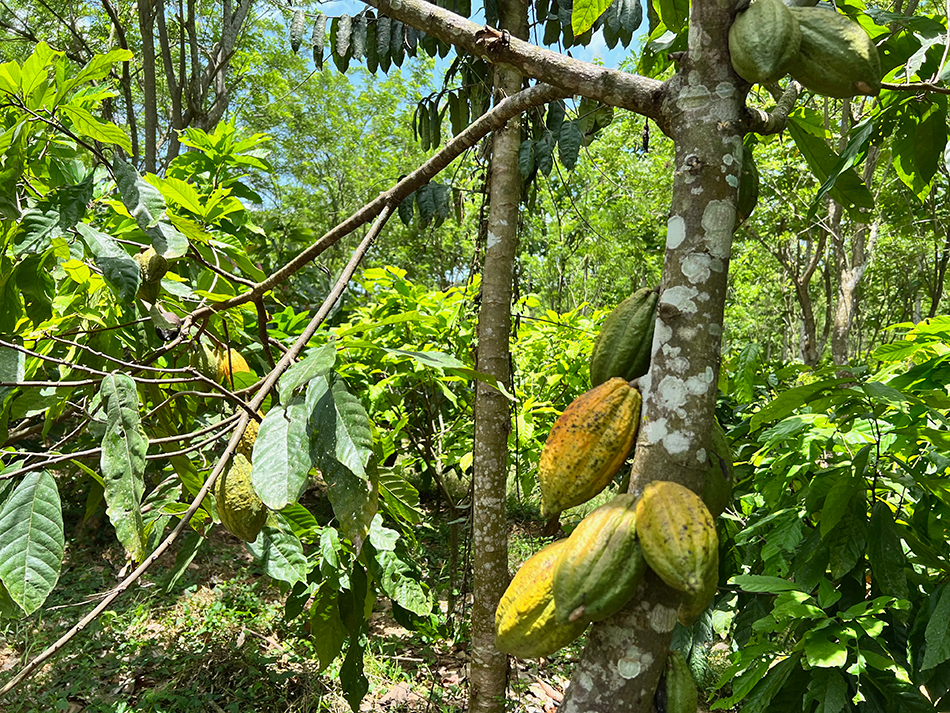
Major players in the chocolate industry have called for more guidance from the EC>
“We have a lot of laws,” she says. “But I think in terms of legislation and what we have to do… mapping all the farms, farmer identification and knowing the cocoa is free from deforestation, and child labour … I think it's right. it's very understandable. And as a company, we are ready.”
Cocoa price volatility
Ocampo says Luker shifted its perspective last year when it became a B-Corp company and was already working towards combining its pricing and sustainability segments.
“It makes a lot of sense, especially with the price volatility we have seen throughout this year. Cocoa families are sensitive to market prices, especially in Colombia, where the market price directly affects our price for the farmer.”
Unlike major West African cocoa producers like Ghana and Cote d’Ivoire, Colombia’s cocoa prices are not state-controlled, and farmgate prices follow the international financial markets.
Luker’s sustainability report, published earlier this year, claimed the family-owned company transferred 94% of the market price back to its farmers.
Still, Ocampo explains that when the market experiences high volatility, with prices fluctuating sometimes on a daily level, the company has to move fast down the value chain to ensure farmers still receive a fair price for their beans.
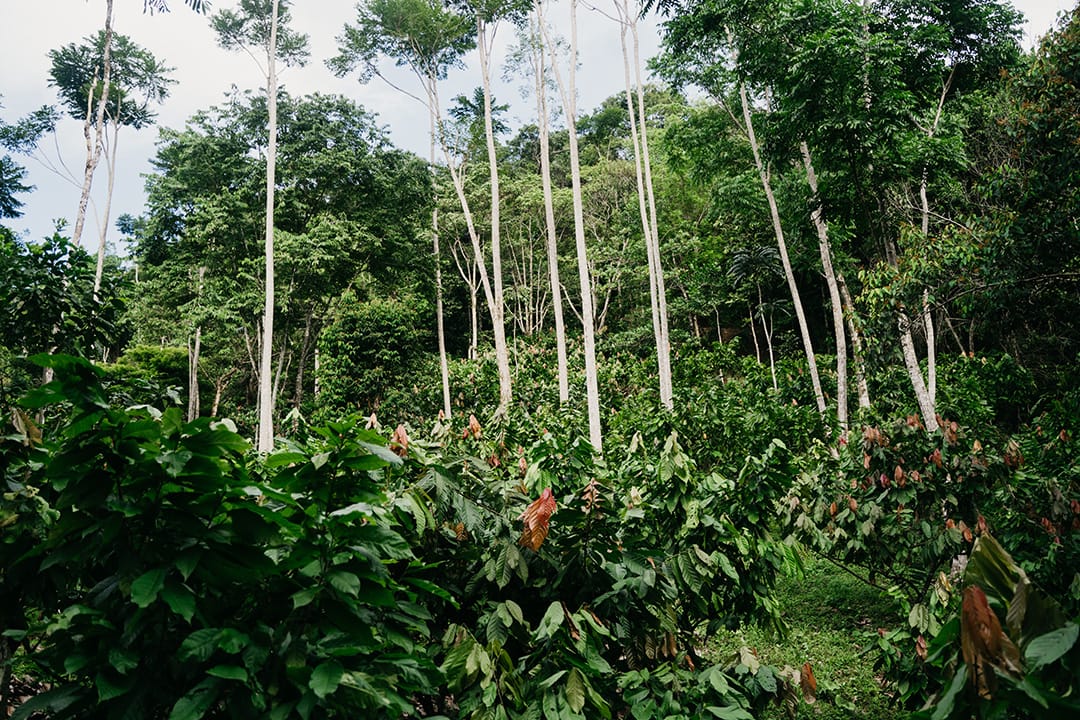
“Normally, we change cocoa prices every Thursday in Colombia, but in the last two to three months, we have had to change prices twice or three times a week to keep transferring the price to the farmers.”
While the farmers have been happy with the increase in income and are motivated to grow more beans, cocoa suppliers like Luker and Ocampo say it has been more challenging to explain to their clients why prices are going up for key ingredients like cocoa “because we move according to the market.”
On the upside, Ocampo says, “It’s cocoa time—now, everybody wants to grow cocoa. It's very nice to see new plantings and the [sustainable] development of more hectares.”
Better use of the cocoa pod through upcyling
As chief sustainability officer, Ocampo is also developing Luker’s upcycling schemes to better use the whole cocoa fruit. In the past, parts of the fruit were discarded, with only the beans considered valuable.
Ocampo presented Luker's work in this field at the Chocoa conference in Amsterdam earlier this year.
“We're trying to find ideas where upcycling is not only for the good of the environment because, in the past, we used less than 15% of cocoa pods. So we're trying to use the whole pod, and we're trying to use the juice coming from the fermentation.
“We also have to include the community… for us, it is not enough that it is just about the environment; we have to work together with the communities to make sense for the farmers.
“So we are buying these pods that they don't really use for anything, mainly fertilizing. We're paying the farmers more for the pods to increase their income.”
Chocolate Dream and a surge in demand
One of Luker’s missions in its Chocolate Dream sustainability programme is to increase farmer income in addition to selling cocoa, and upcycling is one such initiative.
Ocampo remains confident that Colombia’s cocoa sector can cope with the recent surge in demand for cocoa in international markets.
“There is still a lot of room to grow in terms of productivity. We are hopeful that the increased prices will help farmers implement better practices and thus consolidate Colombia’s cocoa sector for the future.
“With an average farmer at around 60 years old, a big challenge for us still lies in engaging young people in the industry to boost productivity,” she says.
Ocampo estimates that Colombia’s cocoa production will be approximately 62,000 tonnes this year, and she is seeing more young people wanting to work in the industry.
The crop has brought peace and stability to many of the country’s regions, and now, with market prices still at an all-time high, some prosperity.
Also on CocoaRadar this week, ICYMI:
